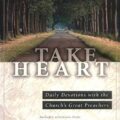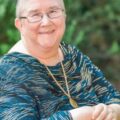 By: Trisha Bleau Smith
By: Trisha Bleau Smith
T4JYM: I have recently had the pleasure of reviewing Earth Restored. I found it to be an interesting book and well worth the time to read. Where did the idea for the book come from? Where do you generally draw your ideas for writing from?
JB: The idea for Earth Restored came from reading Blinded by Might, by Ed Dobson and Cal Thomas. This was one of the few books I’ve read that actually angered me. The basic premise of their book is that Christian activism has failed in America, thus we should abandon any and all efforts at cultural reform. The book’s arguments were highly misguided, in my opinion. I suspect God uses anger to motivate to us to action. That was certainly the case. However, the ideas that are expressed in my book had been brewing in my mind for many years. My response to Blinded by Might simply tripped the switch and got me to start writing my ideas on paper.
T4JYM: How has this book been received by the general public? Has there been positive feedback? Any negative feedback?
JB: There hasn’t been any negative feedback that I’ve heard. Most people that have either written reviews or have contacted me have responded positively. One of the concerns I’ve heard from several people is that the book is sometimes difficult to grasp. It takes a lot of thinking. I won’t say that I’m sorry for that. I think that Americans typically think too little and that reading should motivate us to reflect rather than just entertain. Frankly, I was hoping to get more negative feedback so I could learn what not to do in my next book.
T4JYM: How many publishers did you send your book to before it was picked up? Was it rejected by any publishers? What kind of feedback did you receive from them?
JB: I sent my manuscript to over two dozen publishers and was turned down by all of them. It was very disheartening. In fact, I almost gave up. But one morning I went out to the coffee-pot in our office and one of the guys had left a message, sort of an encouragement to the office, not to give up on what God has called us to do. He wrote it on a napkin. It gave the number of restaurants Colonel Sanders had approached with his secret recipe. I forget the exact number but I think it was 64. Then one day he went to the 65th and they accepted his idea for how to prepare fried chicken. That little story served to encourage me and so I kept going.
Because virtually every US publisher had turned me down, I decided to look overseas for a publisher. Lo and behold a group in Scotland loved the book and said yes. That was a year and a half after I had started looking for a publisher.
T4JYM: Who have been your biggest influences in life? Who have been your biggest influences in your life as a writer?
JB: Among humans I suspect the biggest influence has been teachers. It is amazing but I can think back to little things that teachers said, things that they did not expect to have a great impact, yet they left a mark on me. I recall casual conversations with teachers where something was said that just about knocked me off my feet or stuck with me for years until it gave birth to an idea. Sometimes it’s the little things people say that mean the most in your life.
I’m afraid I can’t think of a writer that was a great influence in my life. This may sound terrible but I don’t read much, except when I’m researching for a book or project. That’s partly because I don’t want to adopt someone else’s style or thoughts. I want everything to be original. Currently I’m writing a dissertation so I’m reading a lot right now.
However, every once in a while a book title strikes me and so I’ll grab it and read. But that’s rare.
T4JYM: What are your next plans for writing? Do you plan to write any more books along the same lines as this book? Will you move on to new writing?
JB: As I mentioned, I’m writing a Ph.D. dissertation on my favorite subject: Christianity and culture. I hope to get it published and so I’m keeping an eye on both scholars and the general trade as I write. The book will take some of the ideas in Earth Restored and develop them much further.
And it will introduce a whole new set of ideas. Plus, I have an idea for another book that will take a look at where we are today as the Church.
Are we, as Paul says, running the race set before us? Or are we just out taking a casual stroll? I hope to answer this, plus many other hard questions.
T4JYM: How do you find time to write? Life is busy and time management is hard to do sometimes. When do you do your best writing and where?
JB: Finding time to write is hard. That’s why it can take a year or more to produce a manuscript. When I was writing for Bill Bright it took 3-4 months to write a book manuscript. But that’s because I was being paid to sit for 8 hours and write. You just have to look for time. You also may need to eliminate things in order to find the time. If it’s your priority you’ll make the time… trust me. You also need time to think about what you’ve written, to reflect on it. Sometimes when I’m driving ideas just pop into my head, or I see that a point that I’ve written is wrong or needs refining. This is part of the writing process too.
I’m a morning person so I write best in the early parts of the day. Past 8:00 in the evening, my brain turns to mush and so I’ve learned not to try to force myself to write at that time. I can write almost anywhere.
But I do need quiet. My office is in our home and often the kids are running here and there with their friends. Plus I’ve got a new dog that sometimes can be the biggest pest. He always wants to play. He brings his ball or his stuffed animal and looks at me with those sad eyes. If that doesn’t work, he sits close to me and growls. If I can keep the kids outside and the dog entertained I can write, write, write.
T4JYM: Are you ONLY a writer – meaning, is writing your full time job or do you have a job that you do full time and write on the side?
JB: Actually, I’m an ordained Presbyterian minister (PCA). I’ve served my church in different ways: an evangelist and as a church planter. I’ve also worked with Campus Crusade for Christ in radio and publishing. Even if I could make a living from writing I don’t think that I would. I love preaching and ministering in the church too much.
T4JYM: What training do you have in writing? Did you take any writing courses in college to obtain the skills you have currently?
JB: I have no training as a writer. Earning two graduate degrees certainly helped improve my writing, but it was not until I was asked to help Bill Bright with his books that I learned how to put together a book. The editors in the office of New Life Publications (Campus Crusade for Christ) put their arm around me and walked me through the process, including tips on grammar, etc. Without that experience I would not have had the knowledge to write my own book.
T4JYM: What advice would you give to someone who wants to pursue a career in writing?
JB: Writing is the sum total of one’s life experience. If you don’t have experience, knowledge, etc., then you can’t write. In other words, it’s not enough to know English grammar and good writing when you see it. You must have something within yourself to draw from or else it’s like trying to draw water from a dry well. In fact one of the editors at Crusade that helped me learn how to write tried to do some writing and found out how hard it is. Now she knows far more about English, proper syntax, etc., than I will ever know. But it’s easier for me to write. The difference is experience. I have more to draw from than she does. I’ve been exposed to more and so my “well” is fuller. I think it helps to expand your world.
Travel and expose yourself to different people and situations. I went to two different colleges and two different seminaries. Not that I would recommend switching schools, but it’s amazing how those experiences actually came back to serve me by widening my perspective. People that live in small worlds write small books, if they write at all. So expand your horizons and get some experience before sitting down to write.
T4JYM: What advice would you give to someone interested in publishing their works?
JB: It seems like everyone and his brother has a book idea. The average major publishing house gets 200 manuscripts a month from unsolicited sources.
Many of those people cannot write, but many can. So don’t fool yourself into thinking that you can write. Be sure you can write because the competition for getting a manuscript accepted is extremely high. It also helps if you do more than write. People with active, thriving ministries that write are in a better position to get published than the person that just sits in front of a computer, regardless of how good their ideas are.
My book, Earth Restored, is full of personal ministry stories. I’m convinced that that helped get the book published. And don’t give up like I almost did. Don’t forget Colonel Sanders. Especially don’t forget God’s providential control over your life and that all things are possible to him that believes.





Be the first to comment